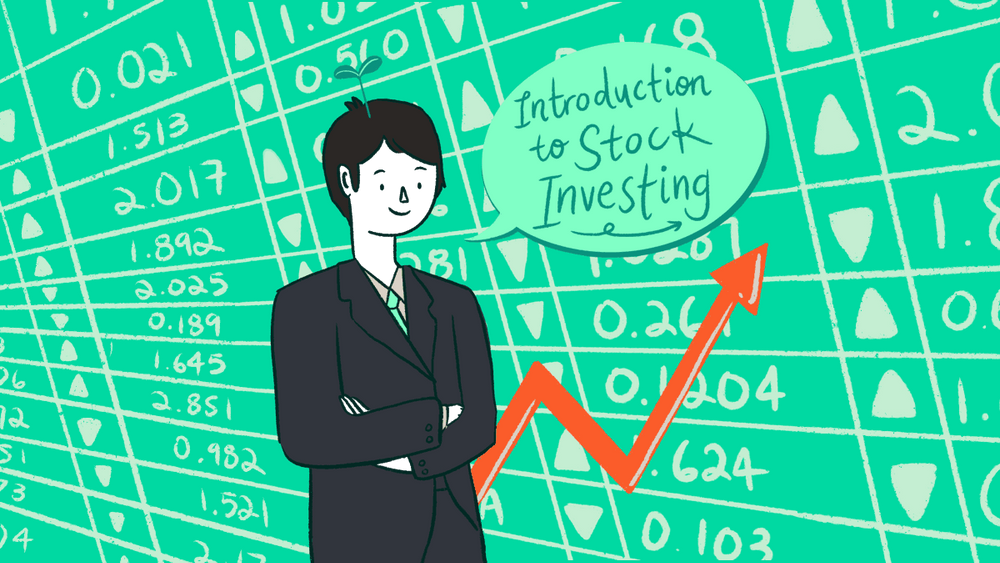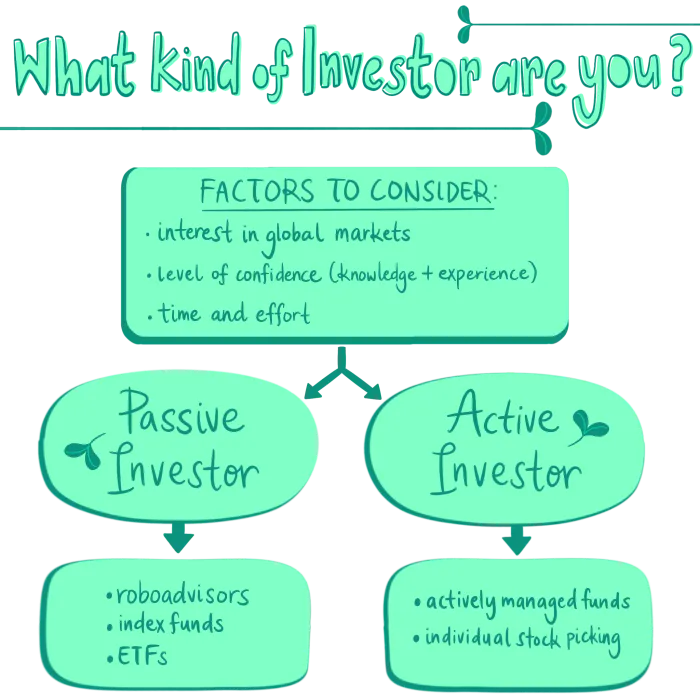Should you invest in stocks and shares? Beansprout's Singapore share investment guide
By Beansprout • 01 Aug 2022 • 0 min read
In this article, we explain what shares investment means! How can someone own a share of a company in Singapore and which shares you should buy.

In this article
What you'll learn:
- What does it mean to buy a stock?
- Why invest in stocks in Singapore?
- What are the risks of stock investing?
TL;DR
- Buying a stock basically entails purchasing a share of that company
- Stock investing enables you to potentially generate higher returns and beat inflation
- But like all investments, buying stocks comes with its own risks
What does it mean to buy a stock?
You may have heard about friends who made money from shares investments in Singapore, but what exactly does that mean? How is it possible to own a share of another company?
When you buy a stock, you’re theoretically buying a piece of ownership in a company.
This investment helps the company to grow and entitles you to a share of the companies’ future profits as it becomes successful.
Imagine that the company is a big apple pie and you own a small slice of it. Now think of the value of a company in terms of this apple pie: the bigger the overall size of the apple pie, the bigger every slice is.
But how does a company go about selling its stock?
Let’s imagine that a new software company decides to launch its business on the market. The company will first advertise its business model to big investors.
If they think the company is a good idea, they will get the first opportunity to invest in it as part of the company’s initial public offering (IPO).
This launches the company onto the official public market, where anyone can buy their stock and invest in it.
For example, Facebook went public back in 2012 with 337 million shares offered at a price of US$38 per share.
This allowed CEO Mark Zuckerberg to grow and expand the company into the tech giant that it is today.
If you’d invested $1,000 in Facebook back in 2012, you would have turned that money into approximately $8,625 today. Now if only we had a time travel machine…
In this case, investing for the long term is different from gambling, as you are owning a piece of real business providing a good or service.
If you have done ample research on the company you are investing in, you should find yourself in a much better position to maximise returns while minimising risks.

Why invest in stocks? What’s the deal with shares investment in Singapore?
Investing in stocks seems like a great idea, because what could be better than letting your money grow by itself?
While most retail investors might be interested in SGX-listed shares investment in Singapore, others may think of purchasing US stocks.
In general, the long-term gains from investing in stocks tend to be better than holding cash or investing in other asset classes such as bonds.
According to analysts, the average 10-year return of the US stock market is 9.2% per annum over the past 140 years. It should be noted, however, that past performance is not an indicator of future results.
Investors can also consider dividend stocks, which give a payout to their investors and allow them to earn passive income.
Another important advantage of stock investing is that it allows you to stay ahead of inflation.
The inflation rate is important because it represents the rate at which the real value of your money is being eroded.
As the price of goods and services goes up, it can decrease the value of your cash over time if it is just sitting in your bank account.
If your stocks have an annualised return of 9% over a long term period, this means that you have successfully been beating inflation which can be anywhere from 2% to 4% a year.

Should I take an active or passive approach to investing?
Active investing is best described as a hands-on approach. It means actively managing your investments with the aim to outperform the stock market’s average returns.
This can be done by investing in a managed mutual fund run by a portfolio manager. But it also can be done by purchasing stocks yourself on an online brokerage platform.
The idea is to invest in specific companies you think will do well while avoiding companies you think will not succeed.
It involves conducting your own market analysis as well as keeping up to date with ongoing developments in global markets.
This allows you to make decisions on when to buy and sell a stock as you anticipate near-term price movements.
Passive investing takes a ‘hands-off’ approach. It incorporates a buy-and-hold mentality without having to pick individual stocks to purchase.
With passive investing, your money is used to buy shares in a basket of companies, which is called an ‘index’. If these individual companies do well, so will the index, and your money will grow.
A prime example of the passive investing strategy is to invest in an index fund that tracks one of the major indices.
For example, the S&P500 index which consists of the 500 largest companies in the US stock market. This can be done on any online brokerage platform or through a Robo-advisor.

Advantages And Disadvantages Of Active Investing
- Greater flexibility and control: The good thing about active investing is that it offers you greater control and flexibility. You are able to shape your portfolio based on the sectors and stocks that you believe would do well. It could also mean having a larger position in a company your values are aligned with. If you are managing your portfolio yourself, you may also choose to engage in hedging, which is a strategy designed to mitigate risk.
- Higher fees: The bad news is that if done through a mutual fund actively managed by a portfolio manager, you can typically expect higher fees. Moreover, the fund managers may not outperform the market all the time. Likewise, if you are managing your portfolio through a brokerage, you may incur various fees depending on the frequency of your trades.
Advantages And Disadvantages of Passive Investing
- Lower fees: Because passive investing requires little human intervention, the fees are relatively lower.
- Market returns: Another good thing is that there is less chance of your investment underperforming the benchmark, since it tracks the performance of the market index.
- Less flexibility and control: At the same time, your ability to shape your investment portfolio might be limited by the index funds that are available in the market. As a result, you may not be able to express your positive view on a single stock by having a larger position in it.
Is stock picking always better?

It is sometimes argued that individual stock picking is superior to index fund investing. But this may not always be the case. Let’s imagine we have two investors: Richard and Kelly.
As an active investor, Richard’s goal is to perform better than the S&P500 index and does his research to pick individual stocks.
On the other hand, Kelly adopts a passive investing strategy and buys an index fund that tracks the S&P500 market index.
The year is 2010. Richard has chosen to invest his money in the following four companies: Walmart, Exxon Mobil, Chevron, and Bank of America Corporation.
At that time, these were large and well-established companies that provided great returns in the previous decade. Kelly, on the other hand, simply chooses to invest her money in the S&P500 index.
10 years later, how did the two of them fare? Richard’s annual returns are roughly as follows: 11.92% for Walmart, 1.6% for Exxon Mobil, 5.1% for Chevron, and 25.4% for Bank of America Corporation.
Assuming that Richard divided his money equally among these four companies, his annual returns are 11% as of 2020.
From 2010 to 2020, the S&P500 index averaged an annual return of 13.6%. As a result, Kelly has in fact beaten Richard without having to worry about doing her own research on which companies to invest in.
What are the risks to be aware of?
But as great as it sounds, the potential for higher returns also means that the risk is generally higher.
There are no guarantees of making a profit when you buy a stock. If the company does poorly and loses investor confidence, its stock price can fall.
All investments come with an element of risk, but stocks are generally one of the more risky types of investments as compared to relatively stable investments such as bonds.
Singapore savings bonds, for example, are considered to be very low-risk investments.
Moreover, you should be prepared for a long term horizon, so you can hold the stock even if the value temporarily dips.
The disadvantage is that you should not predict the markets and stock prices tend to rise and fall rapidly in the short term period.
Investors should be prepared to stomach volatility. For this reason, it is wise to consider a long-term perspective because these price fluctuations tend to smooth out over a longer period of time.
In a nutshell, there is greater potential for higher returns which allows you to beat inflation in the long term, but this could come with more near term volatility.
The important thing to remember is to invest with the view of achieving your financial objectives and growing your wealth over the long term.

No one knows when is the best time to enter the market, and timing the market perfectly is almost impossible.
For this reason, it makes more sense to approach investing with a long-term buy-and-hold strategy. As the saying goes, “time in the market beats timing the market”.
To avoid timing the market, dollar-cost averaging (DCA) is a strategy that involves investing the same amount of money in the same stock or fund on a regular basis over time.
For example, someone who uses a DCA strategy for investing in the S&P500 index fund will set aside a certain amount of money to buy into the fund, regardless of its price.
Sticking to a DCA strategy will help to smoothen portfolio fluctuations and allow you to avoid the risk of market timing.
As with many choices you face when thinking about shares investment in Singapore, it comes down to your own preferences.
But by starting your investment journey early, you can get your money to work for you regardless of whichever strategy you pursue.
Take the next step:
- Find out how to start investing in stocks by setting up a stock brokerage account.
- New to share investing? Read more about blue chip stocks in Singapore
Illustrations by @charlycatfightsback
This article was first published on 01 August 2022 .
Gain financial insights in minutes
Subscribe to our free weekly newsletter for more insights to grow your wealth